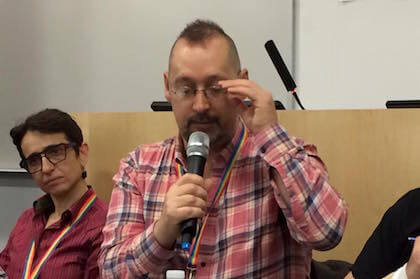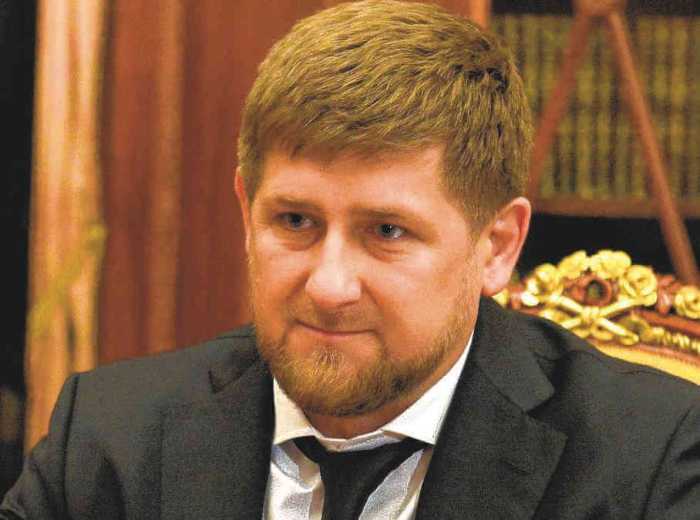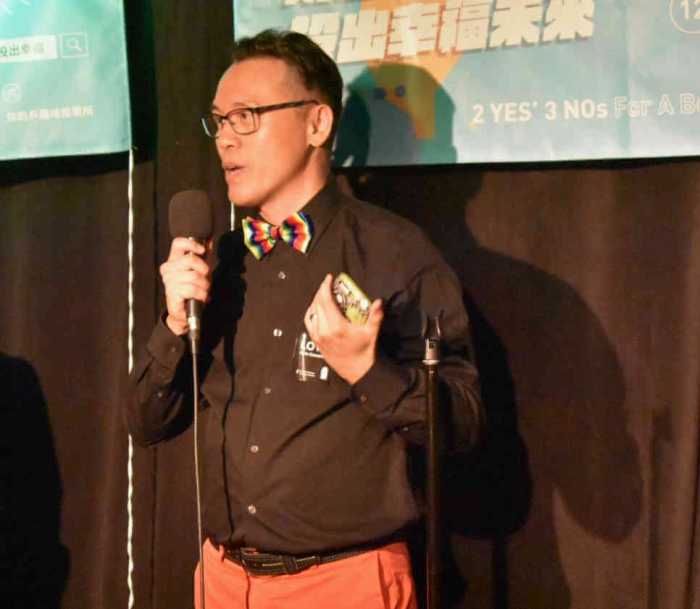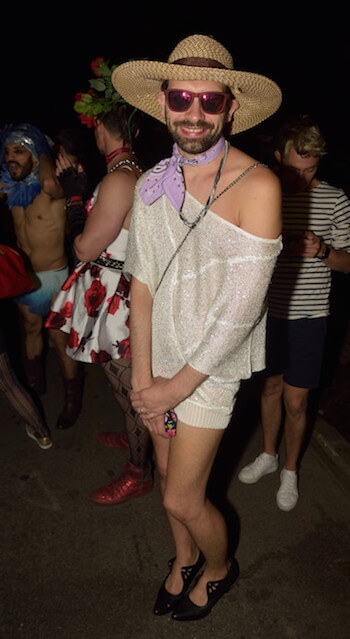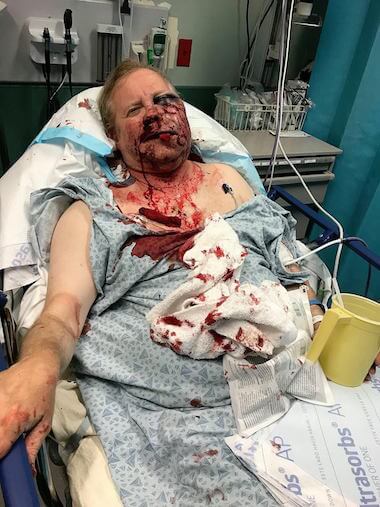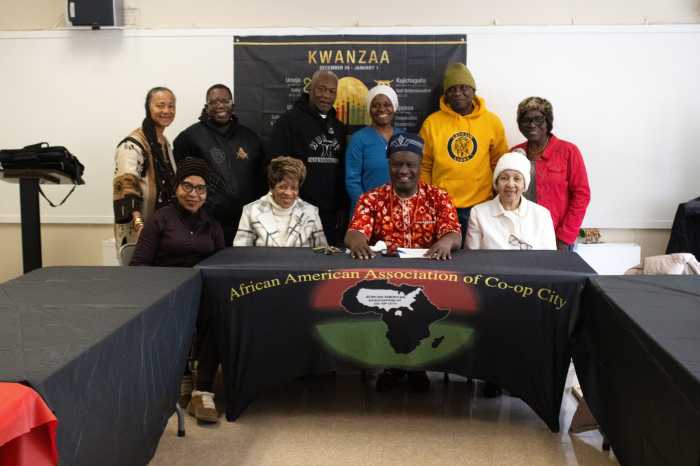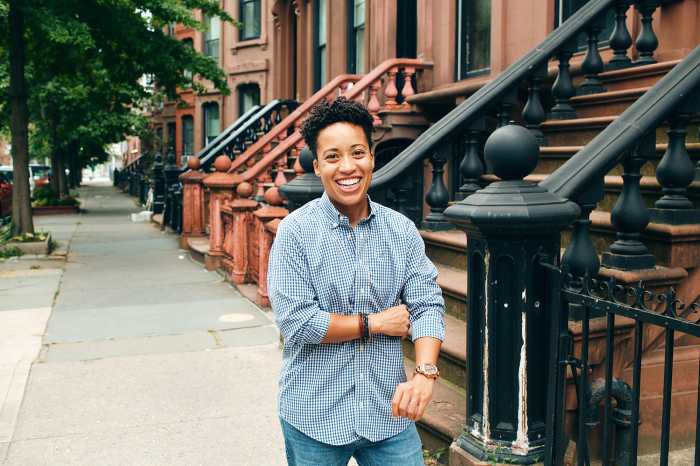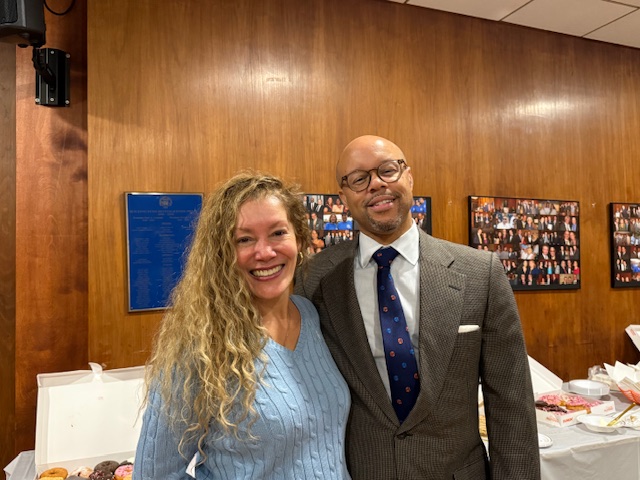Miriam van der Have is a married lesbian and mother of two. She came out publicly about being intersex on a television show in the Netherlands in 2003. Inspired by an out transgender participant on “Big Brother,” van der Have told me with a laugh, she thought, “If she can do it, I can do it too!”
On December 9, I met with van der Have in Midtown after a press briefing on transgender and intersex rights organized by OutRight Action International (until recently, the International Gay and Lesbian Human Rights Commission, or IGLHRC) as part of its 2015 United Nations Advocacy Week.
Co-chair of Organisation Intersex International Europe, van der Have was among the 39 lesbian, gay, bisexual, transgender, intersex, and queer (LGBTIQ) human rights defenders from 28 countries gathered by OutRight for its 2015 United Nation’s Advocacy Week, which coincided with Human Rights Day on December 10 — the date in 1948 when the UN General Assembly adopted the Universal Declaration of Human Rights.
OutRight Action International focuses on global trans, intersex issues for Human Rights Day efforts
Van der Have seemed shy in talking about her professional accomplishments even though she so easily shared more personal information.
“If I had not had surgery when I was young,” she told me, “I would probably not need hormones now. Medical interventions later in life are to make up for problems caused by doctors when we are young.”
Morgan Carpenter, president of Organization Intersex International Australia Limited, also sat with us after the press briefing. His concerns set van der Have’s personal story against a broader context.
“The pathologization of intersex characteristics is extremely problematic,” he told me. “In places where medical systems are accessible, interventions are intended to make our bodies conform to social norms for a certain sex or gender. Doctors emphasize forcing people to adhere to social norms over quality of life.”
“Doctors do what society asks them,” van der Have interjected. “We have to change society to make it possible for doctors to change. I don’t expect doctors to stop if intersex is not accepted by society.”
Van der Have explained that while intersex is not rare, shame and stigma prevent visibility.
“You have probably met intersex people, but they have not dared to tell you,” she said.
As a result, compared to the growing awareness and understanding of LGBT people around the world, comparatively little is understood about those who are intersex.
“Intersex people are born with sex characteristics that don’t meet expected norms for male or female bodies,” explained Carpenter. “Our bodies don’t meet the social expectation of what males and females look like.”
“Intersex is about our lives, not about our bodies,” van der Have added. “It’s about our experiences because of what other people’s expectations are about our bodies.”
While asking a question about people who “identify as intersex,” van der Have gently corrected, “People do not choose to be intersex, they are intersex.”
An intersex fact sheet from the Office of the UN High Commissioner for Human Rights not only includes key definitions and prevalence data, but also summarizes the human rights violations experienced by intersex people around the world, including violations of the rights to health and physical integrity, to be free from torture and ill-treatment, and to equality and non-discrimination.
Jessica Stern, OutRight’s executive director said, “The human rights violations experienced by intersex people are from a category that could only exist in science fiction, yet they are a reality around the world.”
This is why, when asked about the goals of advocates, van der Have and Carpenter focused on the right to bodily integrity. In regions without accessible medical systems, child abandonment, infanticide, and violence against mothers of intersex children are common. Where medical care is more available, infants and children who are born intersex are still being mutilated, whether through surgery, hormone treatment, and/ or psychiatric care.
“Because intersex is framed as a disorder within the medical model,” Carpenter told me, “the medical community uses the tools it has to make people fit into the definitions of sex and gender created by society.”
He emphasized that the need for change includes advocacy and education work within progressive communities.
“The LGBT movement falsely views intersex as a gender identity issue,” Carpenter said. “Why do we think biological determinism is good for intersex people but bad for transgender people?”
In September 2015, UN High Commissioner for Human Rights Zeid Ra'ad Al Hussein brought unprecedented attention to intersex people at the first-ever Expert Meeting on Ending Human Rights Violations Against Intersex Persons:
“When I started as high commissioner a year ago, I knew little about intersex people. I don’t think I was alone in this: it reflects a general lack of awareness. Too many people assume, without really thinking about it, that everyone can be fitted into two distinct and mutually exclusive categories: male or female.
“In fact, human beings — like most living beings — are more diverse and complex than that. Our diversity — the differences between our experiences and perspectives, as well as the shapes of our bodies — is something that we should celebrate and protect, in all its forms.
“All human beings are born equal in dignity and rights. Those foundational, bedrock principles of universality and equality mean that all of us, without exception, and regardless of our sex characteristics, are equally entitled to the protections of international human rights law.”
Carpenter and van der Have emphasized repeatedly how critical it is for the recognition of intersex people to be rooted in fundamental human rights, beyond identity-based frameworks. Stern explained that changing her organization’s name from IGLHRC to OutRight Action International exemplifies this shift in thinking about and approaching the issue of LGBTIQ rights.
“We changed our name because rendering bisexual, transgender, intersex, and queer realities invisible was unacceptable,” she said. “We wanted to make clear in word and deed that our commitment is to the full spectrum of our community.”
For van der Have and Carpenter, this human rights-based framework is critical to moving society beyond the complex intersections of sex, gender, and sexual orientation. Their advocacy is, at its heart, about letting people be themselves and make their own decisions about their bodies.
“This is not a complex issue,” concluded Carpenter. “It’s about our fundamental human right to the autonomy of our bodies.”

